United States President George W Bush should make it clear to Pakistan President Pervez Musharraf during his upcoming meeting at the United Nations that Islamabad's support to terrorism and incursions across the Line of Control 'is absolutely unacceptable', former deputy secretary of state Strobe Talbott said in Delhi on Monday.
The former deputy secretary of the state is in India on the invitation of the Observer Research Foundation, which is a private sector, public policy think tank. Talbott will also be in Mumbai on September 23 and September 24. Talbott heads the Brookings Institution.
Talbott said even under the present Bush dispensation there is 'no anti-India tilt' in the American policy.
Maintaining that there was nothing like a 'zero sum or win-lose game' in South Asia, he told PTI in an interview that a lot of Indian friends have said that Americans should not be carried away by their 'pre-occupation with what is happening in Khyber Pass' on the borders of Afghanistan and Baluchistan to 'obscure' what is happening in Delhi-- terrorist attack on Parliament.
"It is very important for the Bush administration not to confine itself to working with Pakistan on its west and north (Afghanistan). It also needs to do so with regard to south and east (of Pakistan) like the Clinton administration did," he said.
Talbott said Bush should 'make sure' (to Musharraf) that there is no ambiguity about US policy on Pakistani incursions across the LoC and Pakistan's support to terrorism as absolutely unacceptable.
"As not acceptable as violations of territory in any direction in any country and support of terrorism in any country," he said.
Fifty-three-year-old Talbott, who was Washington's interlocutor with the Vajpayee government in the aftermath of the 1998 Pokhran nuclear tests, said the US has to take a 'broad view' of global issues if it wanted to be a world leader.
He said while the US was a 'global leader', India was well on its way to becoming a global leader. "India is not just a regional power, it is a global leader," he said, adding that America should work with rest of the world on the basis of consensus and the notion of international law.
Talbott said the US has 'influence on Islamabad that is unique in some ways' and 'we are going to use that to advance goals and interests which are in India's interests as well'.
Asked about his eight years in the US administration and whether Washington had a 'roadmap' for resolution of Kashmir issue, he said there was no secret roadmap for Kashmir.
First it will be widely not appropriate for the US to have a roadmap on Kashmir as Washington would like India and Pakistan to settle the issue bilaterally.
"Personally," he said, "I favour conversion of LoC into permanent border with due accommodation made for the rights and interests of people who live in Jammu and Kashmir and make arrangements for peaceful and commercially-beneficial interaction between the people of Kashmir (on both sides of the divide)."
Talbott, who along with Jaswant Singh steered the course of bilateral relations on the choppy waters of the nuclear tests, said India was still a long way from coming up with a 'credibly minimum deterrence doctrine'.
During his parallel negotiations with India and Pakistan those days, he found that New Delhi was 'more confident and self-assured' because of a democratically-elected government and Parliament backing it.
Admitting that the US-India relations prior to the nuclear tests were not 'broad-gauged', the Clinton administration official said the Pokhran development acted as a 'catalyst' in enhancing the bilateral ties.
"We wish it had happened without it," he said in reply to a question whether the nuclear tests actually acted as a catalyst enabling the US to understand India better.
He said irrespective of the party in power in the US the bipartisan politics in the country made sure that foreign policy basically remained the same, particularly with regard towards India largely because of common sense and due to Indian-American community's crucial role in his country.
The relations between India and US, Talbott said, was not good for over 50 years largely because of Cold War politics when India was seen as pro-Soviet.
Then the turnaround came more in the aftermath of the 1998 nuclear tests because of the efforts by then Prime Minister Atal Bihari Vajpayee and President Bill Clinton.
During his stay here, apart from the release of his book 'Engaging India: Diplomacy, Democracy and the Bomb', Talbott will launch the partnership between ORF and Brookings Institution and attend a roundtable with MPs and interact with corporate leaders in Delhi and Mumbai.

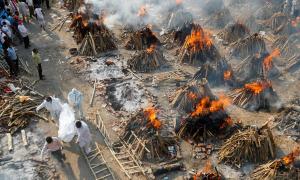
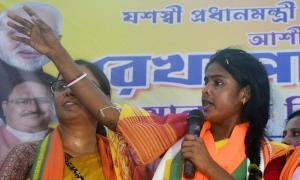
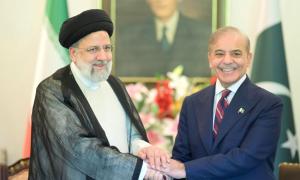

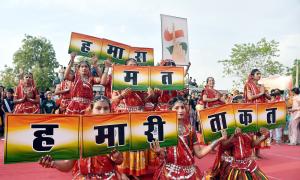
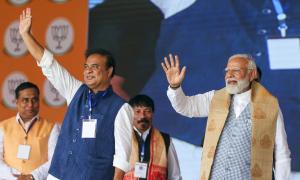

More from rediff